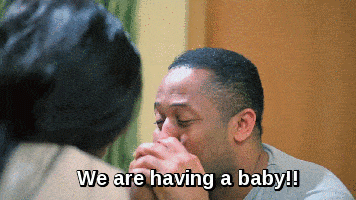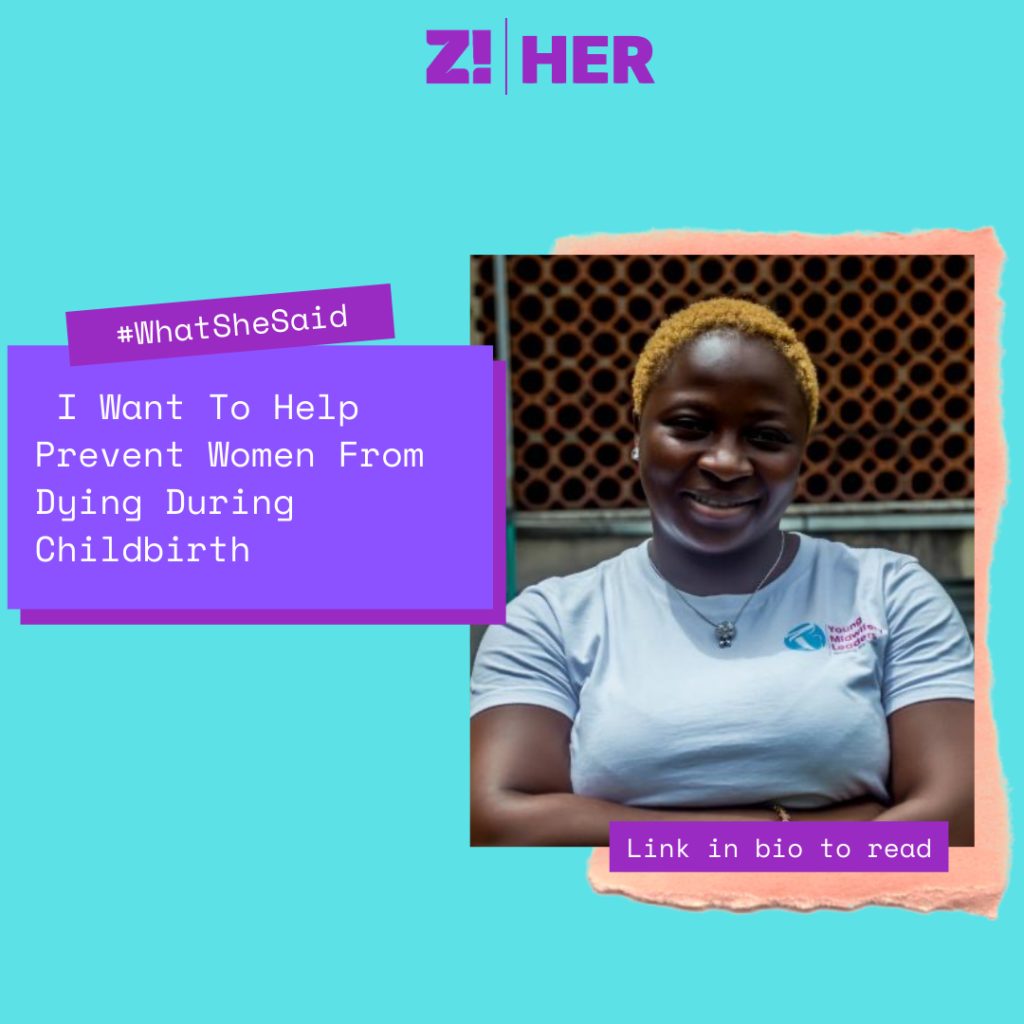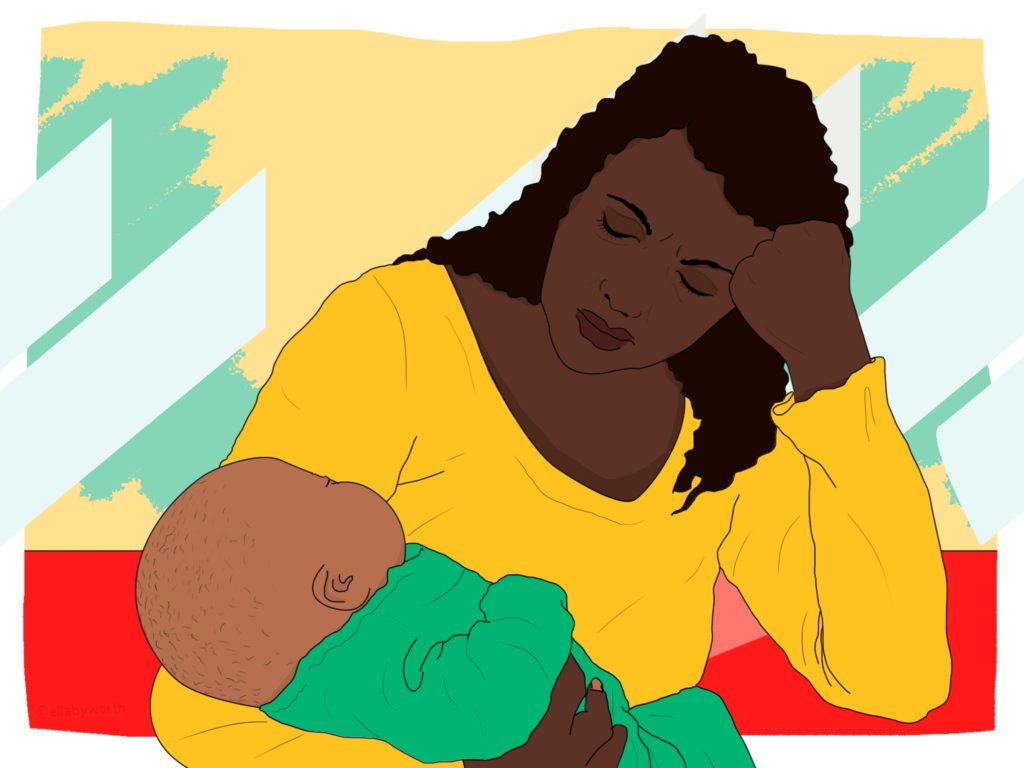We’ve heard the terrifying pregnancy and childbirth stories and seen the funniest things pregnancy hormones have made women do, but what about those who got the better end of the stick in the reproduction lottery? They’re people too.

So, we asked seven of such Nigerian women to share how their pregnancy and childbirth experiences differed from what they expected.
“I was horny all the time” — Lade, 35
I have two kids, and my first pregnancy was the standard “preggy mama” starter pack. Nausea in the first trimester, crazy food cravings in the second, and a three-times-larger nose in the third trimester.
But you see the second pregnancy? I was cruising all through. No nausea or strange cravings, and I was horny all the time. In fact, my husband was running away from me because he was convinced all the sex we were having could harm the baby. The horniness stopped after childbirth, and even after eight weeks I didn’t want. He became the one begging for sex up and down.
“I had my baby within an hour” — Yemi, 29
People used to tell me first-timers have it difficult in childbirth. Even my doctor told me we couldn’t take chances, and that we needed to be prepared for an extended delivery process. So, I expected the worst.
But the day came, and I had my baby within an hour. I was far gone before I realised I was in active labour. I thought it was Braxton Hicks contractions — I’d had them some weeks before — so I delayed going to the hospital. When I got there with my mum, the nurses discovered I was close to 8 cm dilated. I was immediately wheeled into delivery, and an hour later, I was out with my baby.
“I was a ball of energy” — Mimi*, 25
It seems fitting that pregnant women should feel tired, right? I mean, we’re literally growing another human being inside of us. But me, I was a ball of energy all through. I never had the pregnancy waddle, and it’s not like I was this fit person before pregnancy. I even rearranged the whole house once because I was bursting with energy. My friends were always telling me to calm down.
My son is two now, and I’m beginning to understand why I was so energetic. The boy doesn’t know how to sit down in one place.
Can you handle the hotness of Zikoko’s HERtitude? Click here to buy your ticket and find out

“I didn’t know I was pregnant for the first six months” — Joke*, 29
I always thought these “unaware pregnancies” was a scam until it happened to me. I was six months pregnant before I knew. And how did I know? I started to feel strange movements in my stomach at night, which I initially attributed to gas, but I decided to see the doctor when it became consistent. Voila! They saw a baby in my uterus.
Nothing could’ve prepared me for it. I still had my periods consistently, and no nausea, sickness or any typical pregnancy symptom. I also didn’t have a bump till two weeks before I put to bed. I’m sure my neighbours lowkey think I stole a baby.
“Post-birth recovery was really smooth” — Debby*, 28
A church member told me that the first poop after giving birth would be painful, so I dreaded it even slightly more than childbirth. I’d also heard many stories about post-birth difficulties.
Thankfully, my post-birth recovery was really smooth. The poop was still painful, but it was more constipation-ish than the crazy pain I expected. I also had an easy breastfeeding experience, and holding my baby in my arms for the first time wiped away any pain I thought I had. Now, I know why many of our mothers went through this five or six times.
“I didn’t have stretch marks” — Moyin, 27
This probably sounds shallow, but stretch marks were one of my biggest concerns with pregnancy and childbirth. I know many people who developed stretch marks and even called it a “badge of honour”. I appreciate the sentiment, but I didn’t want them. For context, I do a bit of modelling, and I didn’t want lasting scars.
I must’ve used everything in this world during pregnancy. Shea butter, coconut oil and every anti-stretch mark ointment I know. I also didn’t scratch my belly at all. It worked. I’m four months post-partum now, and zero stretch marks.
“There was no weight gain or huge nose syndrome” — Hannah*, 30
Weight gain and “huge nose syndrome” is like the hallmark of pregnancy, based on what I’ve seen and heard. But I was pleasantly surprised I didn’t experience either. I practically maintained the same shape throughout my pregnancy, minus the belly, of course, and you couldn’t tell I was pregnant by merely looking at my face.
It wasn’t a one-time thing; it was the same experience for my two pregnancies, and I’m grateful for that.
*Some names have been changed for the sake of anonymity.
NEXT READ: “It’s a Personal Hell” — 7 Nigerian Women on Trying and Failing to Conceive










